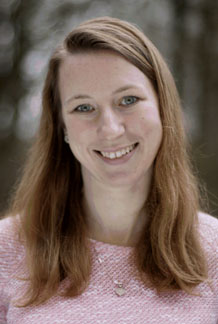Dr Sviatlana Shashkova
Royal Society Newton International Fellow
I am a Royal Society Newton International Fellow in Professor Mark Leake’s Biological Physics research group at the University of York.
I did my PhD in Molecular Biology as one of the European Marie Curie Initial Training Network (ITN) Fellows. It was an interdisciplinary project which included several groups from different universities around Europe. My work focused on the molecular aspects of how cells change their lifestyle in response to altering extracellular environments using budding yeast as a model organism. Professor Leake was one of the ITN partners. After a couple of chats and a few months of preparation we started our collaboration where we used super-resolution microscopes developed in Mark’s group to observe the proteins of interest directly in living yeast cells in real time with single-molecule precision. This is how I got into the field of biophysics.
About a year and a half before I finished my PhD, Professor Leake told me about the Royal Society Newton International funding scheme. My proposal idea was based on data we’d already obtained, but the research questions were more biophysics orientated. The project required me to become a biophysicist, connecting my molecular biology background with specialised physics. This is an interesting and extremely valuable experience – working in an interdisciplinary environment makes you look at your research from a different angle and opens up new ideas and perspectives. Writing the proposal was quick and easy, but I was lucky to have help and support from Professor Leake during the application process. In the end, I was awarded the Newton Fellowship while still finishing my PhD.
My general tip would be to start well in advance: think about your potential project and get familiar with the guidelines. I didn’t receive any detailed feedback on my application, but my advice is be creative and don’t be afraid of switching fields. Your track record matters! Use any chance to improve your CV – publications, smaller grants, conferences, taking care of students even if you are not the main supervisor, teaching, etc. Be active, meet other scientists, discuss your work and theirs – it always opens up opportunities. During my PhD I wrote a couple of successful research travel grants and started to establish a scientific network. By the time of the Newton application I had a better understanding of the grant writing process and it was not a problem to find referees (the Newton scheme requires six reference letters).
Last but not least, you should understand why you need this and what your future plans are. It will not only make it easier to fill this part in in the application but also help you understand what to do next for your career.

